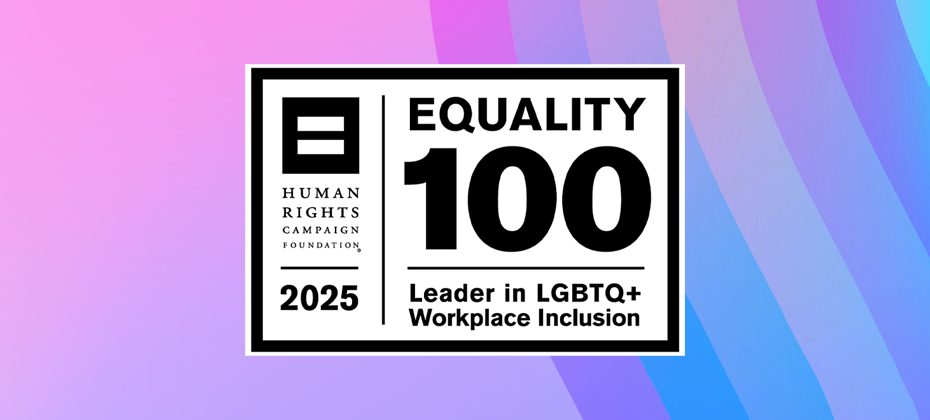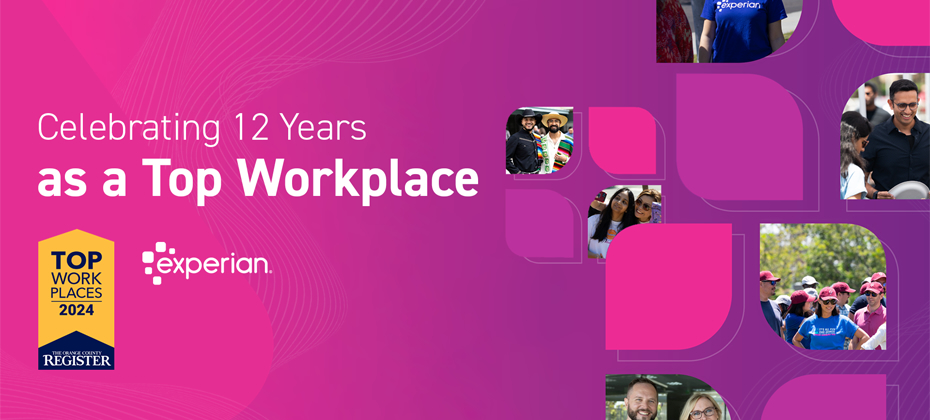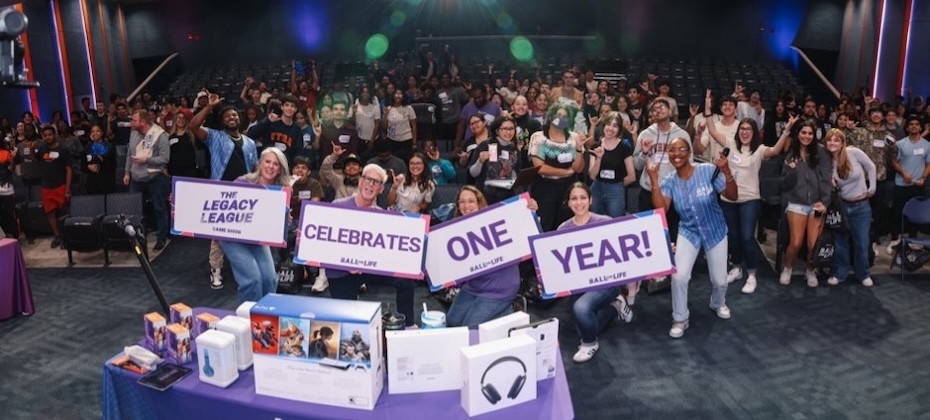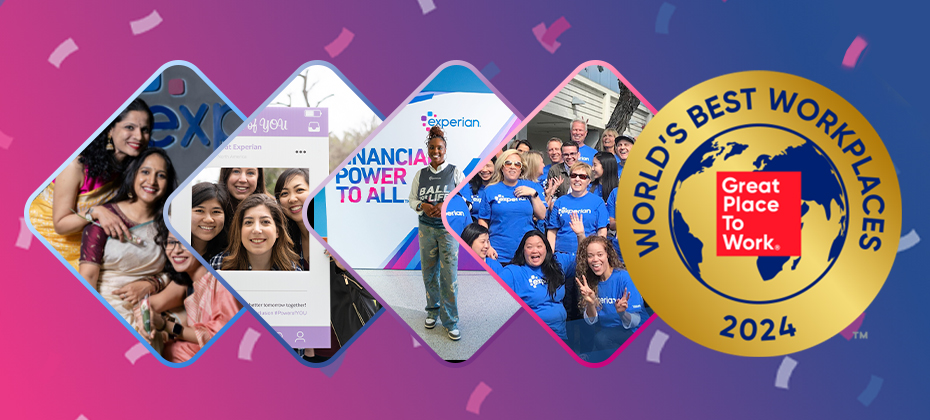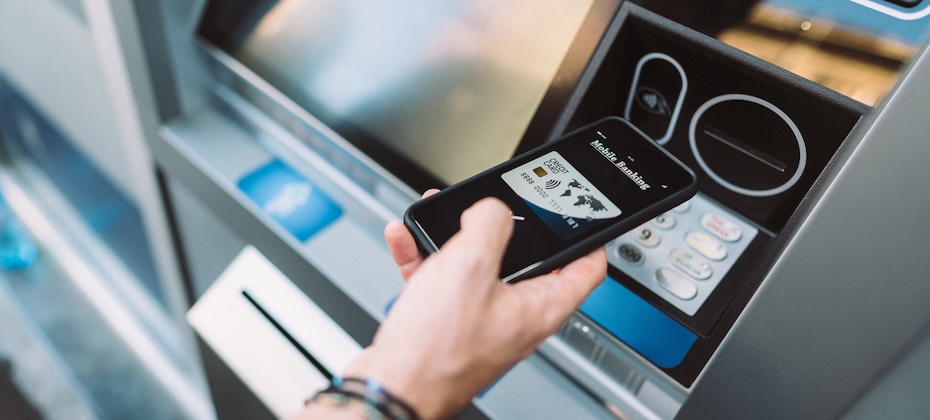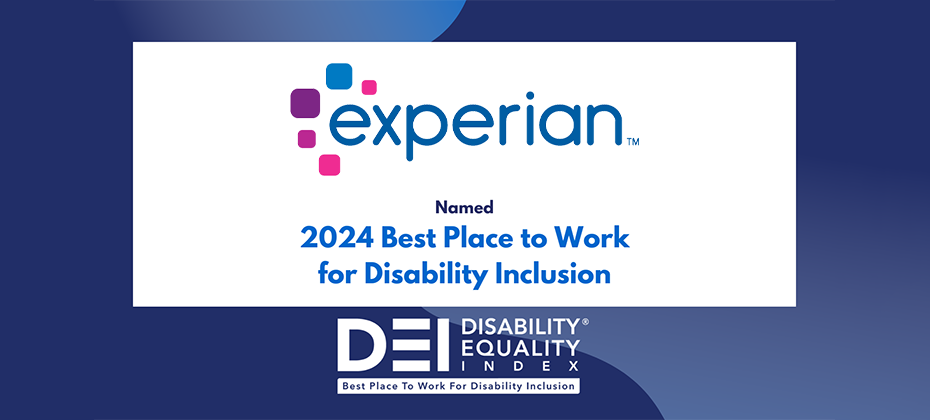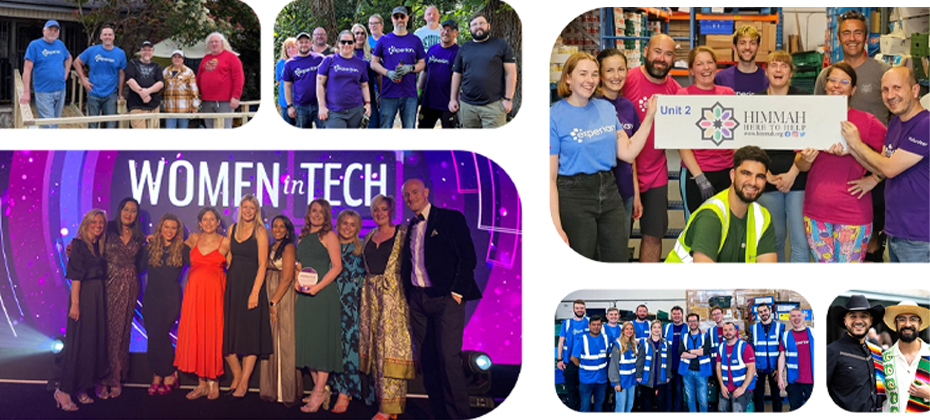At A Glance
At a Glance When an unknown printer took a galley of type and scrambled it to make a type 2ince the 1500s, when an unknown printer took a galley of type and scrambled it to make a type specimen book. It has survived not only five centuries, but also the leap into electronic typesetting, remaining essentially unchanged. It was popularised in the 1960s with the release ince the 1500s, when an unknown printer took a galley of type and scrambled it to make a type specimen book. It has survived not only five centuries, but also the leap into electronic typesetting, remaining essentially unchanged. It was popularised in the 1960s with the releaseince the 1500s, when an unknown printer took a galley of type and scrambled it to make a type specimen book. It has survived not only five centuries, but also the leap into electronic typesetting, remaining essentially unchanged. It was popularised in the 1960s with the releaseince the 1500s, when an unknown printer took a galley of type and scrambled it to make a type specimen book. It has survived not only five centuries, but also the leap into electronic typesetting, remaining essentially unchanged. It was popularised in the 1960s with the releaseince the 1500s, when an unknown printer took a galley of type and scrambled it to make a type specimen book. It has survived not only five centuries, but also the leap into electronic typesetting, remaining essentially unchanged. It was popularised in the 1960s with the release

As the COVID-19 pandemic continues to disrupt lives across the globe, fraudsters continue to take advantage of the vulnerable situation. The opportunistic nature of fraudsters means that times of crisis and pandemics open up additional breeding grounds for fraud and identity theft. Our latest CrossCore® release has never been more relevant for businesses than right now. Confidently recognizing consumers and safeguarding digital transactions is always a difficult balance – but now more critical than ever. With CrossCore, businesses can limit fraud losses and reduce unnecessary customer friction, at a time when safe and convenient access to financial services is essential. This new version of CrossCore, our integrated digital identity and fraud risk platform, combines risk-based authentication, identity proofing, and fraud detection into a single, cloud-based platform. This means that businesses have the capabilities and technology they need to rapidly respond to an ever-changing environment. With flexible decisioning orchestration, advanced analytics, and pre-integrated identity and fraud services, businesses can make real-time risk decisions throughout the customer lifecycle. And they can do all of this through simple self-service. We know there’s no silver bullet when it comes to fighting fraud, which is why we continue to develop our curated partner ecosystem. This gives companies access to all the technology and capabilities they need, in one place – whether it be Experian’s, our partners’, or their own. We combine this with advanced analytics and our own rich data assets plus a built-in strategy design and enhanced workflow giving fraud and compliance teams more control to adjust strategies based on evolving threats. This helps improve efficiency and reduce operational costs. Updates to the new version include the ability for clients to submit dynamic API request payloads, apply progressive risk assessments, apply parallel logic, enable self-service workflow configurations, and provide an online business intelligence (BI) module to view transactional volume reports. These updates will give CrossCore users a simpler way to manage complex orchestration; faster more scalable performance; and key performance indicators in near real-time, all while enabling a personalized and seamless experience for their true customers. More than 250 clients worldwide use CrossCore today, including capabilities from our third-party partners. To start leveraging best-in-class, pre-integrated identity and fraud services through simple self-service learn more about the Experian CrossCore platform.

Today kicks off Asian Pacific American Heritage Month. The Experian Asian American Employee Resource Group (ERG) is proud to recognize this special month by sharing how Experian is supporting a national campaign to address the adversity facing some of our most at-risk communities right now. Experian has joined ten non-profits and more than 80 companies from across industries and sectors nationally to support the #AscendTogether action agenda. It includes promoting inclusion, raising awareness of vulnerable groups, denouncing bias, supporting frontline healthcare workers, COVID-19 victims and families, and donating funds and resources to support vulnerable populations and impacted businesses. Led by Pan-Asian leadership nonprofit Ascend, this effort is designed to bring about unity at a time when fear about COVID-19 has led to rise of intolerance and racist acts, particularly against the Asian and Asian-American community. Experian is proud to step up as a leader in our industry to participate in this effort. As executive co-sponsors of Experian’s Asian American ERG, we hope you will join us in our efforts to be a champion for diverse communities, especially during this time. You can learn more about #AscendTogether here. Written by: Dacy Yee, Chief Customer Officer ECS Direct-to-Consumer and Jimmy Cheung, Senior Vice President of Technology and Engineering
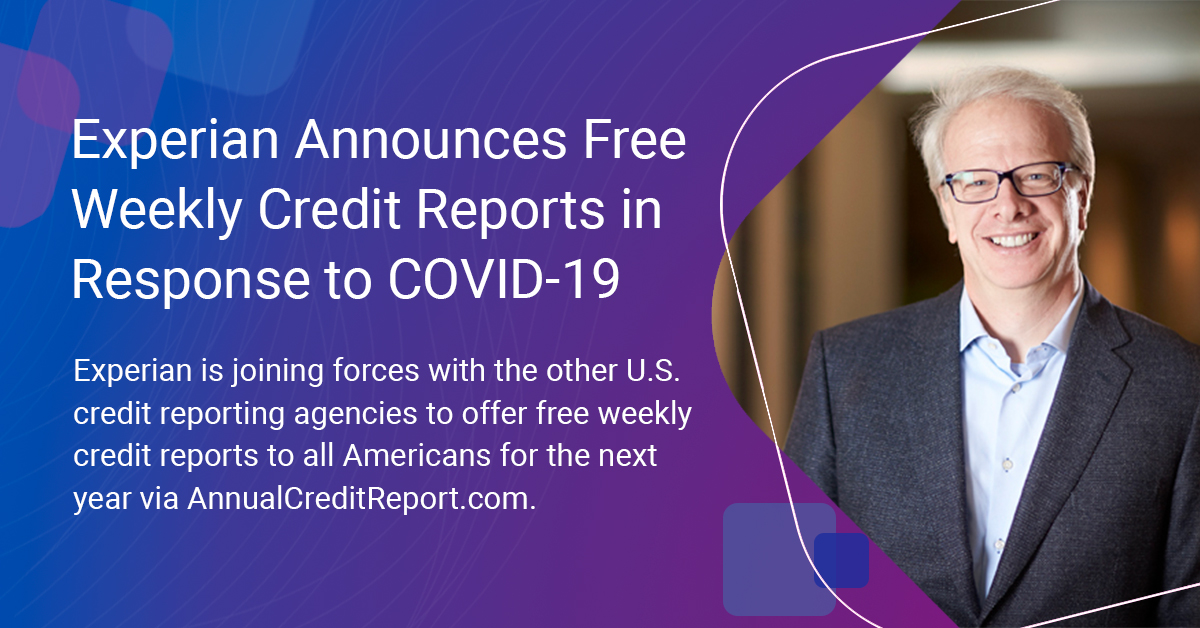
With the impact of COVID-19, we’re certainly in uncharted territory. Many people are struggling with high unemployment, which is resulting in missed credit card, utility, and rent payments. In response, Experian is joining forces with the other U.S. credit reporting agencies, to offer free weekly credit reports to all Americans for the next year via AnnualCreditReport.com. A credit report allows people to monitor their finances and better understand their overall financial health. We’re proud our industry is uniting to make this possible for all U.S. consumers starting today. Credit reports are updated constantly, so the ability for an individual to look at their report weekly is helpful to monitor for lender updates and ensure there is no fraudulent or unfamiliar activity. During these difficult times, this is especially important. In addition to the free weekly credit report at AnnualCreditReport.com, Experian also offers consumers free access to their credit report, FICO score, and ongoing credit monitoring at Experian.com. This is a no-charge product. We want to give consumers multiple options to access and manage their credit report. At Experian, we’re committed to enabling fair and responsible lending through the power of our data. As the consumer’s bureau, our goal is to not only help consumers build credit but to get better access to credit. All of us are working diligently every day to keep our data as accurate, relevant, and secure as possible so that lenders can use the data to responsibly extend credit to people who need it most especially when the economy returns to strength. What You Can Do Now The most vital action someone can take if they are unable to pay a bill is to talk with their lender and inquire about assistance programs that may be available. If a consumer receives an accommodation it will have minimal impact on their credit score if their account is in good standing and if there hasn’t been previous delinquencies reported We remain committed to informing, guiding, and protecting people during these unprecedented times. Beyond our offer for free credit reports, we’ve created a dedicated website, with links to multiple resources and materials to help the community learn about credit and other important personal finance topics. We encourage everyone to visit the Experian COVID-19 Resources & Credit Education. Take care and stay healthy.

The pandemic’s full economic impact is still unfolding, and I can assure you we have not stopped evaluating and evolving our COVID-19 response nor our thinking about economic recovery for consumers and businesses alike. In the last month, we’ve been driven by two major priorities. The first is the health and safety of our employees. On top of that, we have placed a laser focus on putting our resources to work to help people and businesses during these uncertain times. While we have all been adjusting to our ‘new normal’ working environment, our employees in North America have not slowed down. In fact, they have worked hard to create solutions and tools designed specifically to help people successfully navigate the evolving financial landscape. From free credit reports to complementary ‘payer alerts’ for healthcare organizations to consumer credit education, we’ve launched a wide-range of initiatives. Here are a few highlights I’d like to share with you: FOR CONSUMERS: Experian Credit Report and Score: Consumers can sign up and access their FICO® Score, Experian credit report, and ongoing credit monitoring through Experian’s free CreditWorks product. Consumers can also sign up to Experian Boost, a free financial tool that has helped more than 2 million consumers increase their credit score. Consumer Resources Website: As the consumer's credit bureau, Experian’s commitment is to inform, guide and protect its consumers and customers during uncertain times. One way the company is doing this is through this dedicated website, with links to multiple resources and materials to help the community learn about credit and other important personal finance topics. COVID-19 and Your Credit Report: Being fully committed to helping consumers and lenders during this unprecedented period, Experian has created this dedicated blog page with ongoing and updated information pertaining to how COVID-19 may impact consumers’ creditworthiness and – ultimately – what people should do to preserve it. The blog will be updated with relevant news as Experian announces new solutions and tactics. #CreditChat: In response to the urgent and rapid changes associated with COVID-19, Experian is accelerating and enhancing its financial education programming to help consumers protect their financial health. With expected delays in bill payments, unprecedented layoffs, hiring freezes and related hardships, Experian seeks to aid consumers in understanding how the credit reporting system and personal finance overall will move forward in this landscape. Experian has launched an eight-week series of #CreditChat conversations surrounding COVID-19 on Wednesdays at 3 pm ET on Twitter and live video credit chats every Friday at 12:30 pm ET on Facebook Live. FOR BUSINESSES: Free Experian Business Credit Report: Experian is offering all American-owned small businesses free access to their Experian business credit report through May 1, 2020, to help small business owners impacted by the COVID-19 pandemic. By accessing a free business credit report now, small business owners can understand where their credit score stands and look for the best lending options for their business before they obtain funding. COVID-19 U.S. Business Risk Index: To further help small businesses gain access to capital they need, Experian launched its free COVID-19 U.S. Business Risk Index to assist lenders and government organizations in understanding how to make lending options available to the business segments that need it the most. This new risk index can help business risk professionals better understand the impact that the pandemic may have on commercial operations based on several key factors. This methodology combines business risk, anticipated impact on business industries and real-time COVID-19 case data to help businesses better simulate various impact scenarios down to the state level to help develop relevant strategies. Experian® Health Payer Policy Alerts: This is a free comprehensive list of COVID-19 and telehealth payer policy alerts for United States hospitals, medical groups, pharmacies and specialty healthcare service organizations. Payer policy alerts are provided by commercial, Medicare and Medicaid payers and summarize changes to medical coverage policies from those organizations. This public service to the healthcare community will continue to be updated and remain free as long as alerts related to the COVID-19 pandemic continue to be distributed. At-Risk Audiences: In an effort to help essential organizations, such as healthcare and government agencies, provide resources to those most in need during the COVID-19 pandemic, Experian is leveraging its data assets, free of charge, to identify groups of individuals that are most likely to be impacted. Experian developed new audience segments that are built in a privacy-compliant manner and designed to help these organizations find and communicate with at-risk populations, enabling them to deliver essential services as quickly as possible. Business Resources Website: This newly launched website was developed to help businesses prepare to manage increased attacks, continue to push toward digital banking, and understand regulatory changes as businesses find their footing in this evolving financial services landscape. FOR COMMUNITIES IN NEED: First Responders First: Experian North America is supporting first responder workers by donating funds for personal protective equipment (PPE) to COVID-19 for hotspots in New York City and New Orleans through the nonprofit organization, First Responders First. These funds will provide essential supplies, equipment and resources such as masks, gowns, gloves and more to those on the frontline. Heart of Experian Giving Opportunity: Experian is leading this effort in which employees can assist by making a donation to First Responders First through Experian’s Heart of Experian giving opportunity. Experian will match employee donations up to the annual limit of $500 per employee, while funds last. This donation is the latest support the company has provided to help minimize exposure for those most at risk. For example, in California, the company also donated 12,000 masks to the Hoag Medical Group. I’m proud of the work we’re doing at Experian to help those impacted by this crisis. We remain dedicated to our employees, consumers, businesses and communities – and we will continue to innovate and develop new offerings to help those in need. Craig Boundy CEO, Experian North America

As I reflect on the impact COVID-19 has had on my work and family life, I’m reminded of the things I once took for granted. My day-to-day routine has evolved into one of working from home, helping to take care of my toddler, and at times, doing so while on conference calls, sorting out the next grocery delivery, and writing this blog. While it’s a challenge, I’ve come to appreciate and value many of the things I’ve once taken for granted. But I also understand, I’m not the only person experiencing change. Across the globe, lives have been upended. The impact of the COVID-19 outbreak has been far-reaching and felt by hundreds of millions of people; whether due to family members that have fallen ill, job loss, shortened working hours or their children out of school. COVID-19 is an existential challenge that no one industry or entity can single-handedly address; we all need to play our part. Some companies, such as Fanatics, Ford, General Motors and Tesla, have shifted production efforts to focus on manufacturing medical resources, including personal protective equipment and ventilators. Others are donating free meals and resources to help consumers across the globe manage during this unprecedented time. Much like these organizations, Experian is committed to helping consumers and businesses navigate our current environment. We’ve expanded our financial education programming with the goal of helping consumers maintain good credit and protect their financial health. We’ve also offered small businesses free access to their Experian business credit report to help them better gauge their financial options and understand what capital is available to them. But as the world continues to combat the pandemic, we, like others, must look for new and additional ways to help. As essential organizations extend outreach efforts for those impacted by the outbreak, we believe data and technology can help them identify the groups that are most at-risk. With finite resources and limited bandwidth, it’s important for these organizations to communicate with at-risk populations and provide essential products and services as quickly as possible. With this urgency in mind, Experian developed At-Risk audience segments, which it is making available free of charge to essential organizations, such as government agencies, healthcare providers and non-governmental organizations, to help combat the fallout of the COVID-19 outbreak. The segments are built in a privacy-compliant manner and provide insights to help essential organizations reach those most in need. Organizations can use the information to determine where to allocate emergency funds, as well as redirect healthcare resources. Because the situation associated with the pandemic is changing seemingly every day and is impacting individuals in different ways and times, we also instituted a daily survey of the general population to gain insights around shifting consumer sentiment as a result of COVID-19. The insights from the survey will help organizations understand consumer sentiment during this difficult time and begin the process to identify at-risk populations. As of April 8, 2020, the survey found that: 73 percent of Baby Boomers are concerned about visiting the doctor and/or would hold off seeking care. 60 percent of Americans are concerned about filling prescriptions and/or accessing healthcare resources. 64 percent of Americans are concerned about their ability to access food and other essentials. COVID-19 has impacted consumers and businesses across the globe. As we all adapt to the new environment, we need to work together and collaborate to find ways to combat the fallout. Experian will not be stopping here, and we are committed to developing new ways to use our resources, data, technology, and creativity to help be part of the solution.

Recently, I had the privilege to serve on a panel during a joint workshop held by the Consumer Financial Protection Agency (CFPB) and the Federal Trade Commission (FTC) to examine the accuracy of credit reports and how to best serve consumers. During the workshop and in following written comments, I shared Experian’s commitment to advance accuracy in consumer credit information and our perspective on how the current regulatory environment supports our efforts to achieve continual improvements. At the workshop, we heard concerns about how inaccuracies in credit reports can impact consumers and businesses in terms of denial of credit or higher-priced credit. For Experian, these are real concerns. Our role as a credit reporting agency is to help facilitate fair and affordable credit to consumers and small businesses, and that’s why data accuracy is mission-critical and central to our corporate values. Since the workshop was held in Washington, DC, it’s no surprise that many stakeholders turned to the topic of reforming the existing regulatory system. Some stakeholders focused on making systemic changes in law and regulation, such as by setting very strict matching standards when credit bureaus receive and issue credit reports. But experience shows us that the current legal and regulatory standards are, indeed, appropriate and we don’t need a sledgehammer to hit a nail. Such actions would have unintended negative consequences and are unnecessary when all stakeholders share the goal of ensuring access to credit. In fact, the central theme I reinforced at the workshop was that the CFPB’s existing supervisory and examination authority, combined with market demand, industry investment and consumer expectations are the most effective ways to continually improve accuracy of credit reports. Let me explain how my over 30 years of experience with Experian leads me to this conclusion. Consumer reporting agencies, like Experian, are regulated by the Federal Fair Credit Reporting Act (FCRA). The FCRA requires that consumer reporting agencies “follow reasonable procedures to assure maximum possible accuracy” when assembling credit reports. Notably, this standard does not set an accuracy rate but appropriately recognizes the complexity brought about by a system with thousands of stakeholders (lenders, users of credit reports, and credit reporting companies reporting billions of pieces of information on hundreds of millions of consumers). It’s been more than eight years since we last saw comprehensive studies to determine the accuracy of credit reports. The two most cited are reports from the Policy and Economic Research Council (“PERC”) and FTC. One of the key findings in both studies was the percentage of consumers that were impacted by material errors in their credit report. In other words, errors that resulted in credit score changes that impacted the interest rate a consumer would pay on a loan. Both studies found that a small percentage of credit reports, 0.5% in the PERC Study and 2.2% in the FTC report, had material errors. While the percentages do represent many consumers (a minimum of 2.5 million to 4.4 million consumers) they also highlight the important need for continuous improvement so that material and consequential errors are the focus of innovation in data integrity. We don’t need to throw the baby out with the bathwater, we need to hone in on targeted and discrete changes. That’s my job at Experian, and I’m passionate about it. In addition to the “maximum possible accuracy” standard, market incentives provide another powerful mechanism to ensure improved data accuracy. Users of credit reports – ranging from banks to employers to government agencies – rely on accurate data to make critical decisions every day about loans, employment access, government benefits, and other important matters. Lenders need accurate data to perform sound risk assessments and provide terms tailored to the borrower’s appropriate risk level. As a result, credit reporting agencies compete to have the most reliable and accurate data. The same is true of lenders reporting data on their customers, as they have incentives to maintain good consumer relationships. Further, if inaccurate data is reported by a lender or maintained by a credit reporting agency, we all spend more time responding to consumer disputes instead of investing in new products and services to help consumers. It’s easy to see why inaccurate data just isn’t good for business! Since the FTC and PERC accuracy studies were completed, the regulatory environment for credit reporting has drastically changed. In 2012, the CFPB began to supervise and examine the credit reporting industry. This regulatory authority allows the CFPB to see the entire credit ecosystem that is composed of not only credit bureaus, but also lenders, other users of credit reports, and entities that furnish data to credit bureaus. CFPB’s comprehensive and continuous examination procedures include directly reviewing the policies, procedures, and practices of major credit reporting agencies. These steps include reviewing how data furnishers are screened, steps taken to minimize the likelihood of incorrect information on a report, measures to prevent duplicative information, and any programs designed to assess the accuracy of consumer information. These actions allow the CFPB to understand the metrics of accuracy and how it improves over time, and to apply the FCRA on a dynamic basis that can meet any challenges unforeseen when the law was originally passed. The CFPB’s supervisory authority thus serves as a powerful tool to holistically address data accuracy. In a 2017 supervisory report, the CFPB stated that “Credit reporting agencies have made significant advances to promote greater accuracy, the oversight of furnishers, and enhancements to the dispute resolution function.” It’s also important that there are ongoing discussions among the credit bureaus about how to move accuracy forward. To that end, joint efforts by the credit reporting agencies pursuant to an agreement with a group of state attorneys general, resulted in a joint working group to look at what can be done collectively to agree on improvements to accuracy. Recent changes include the delayed reporting of medical debt to allow time for insurance to process payments, and the removal of judgment and tax lien information, which did not meet new, elevated standards. The joint working group continues to explore new ways of increasing the accuracy of credit data. A broad, flexible, yet demanding legal structure, combined with strong market incentives and a robust and effective supervisory program, all work together to foster an environment to best serve consumers. As the consumer’s bureau, Experian is committed to playing a leading role in furthering a strong and accurate credit reporting system.

As I sit here on the day of the launch of the most comprehensive small business stimulus program in our nation’s history in response to the COVID-19 pandemic, my mind turns to the small business owners. Starting today, business owners can start applying for loans that are forgivable under the Small Business Administration’s $350 billion Paycheck Protection Program as long as those businesses maintain payroll to most of their staff and use the funds for eligible expenses. You’ve heard that small businesses are the heartbeat of the U.S. economy, the statistics back that up – small business represents a 47% of all employees and generate 43.5% of the Gross Domestic Product (GDP). More than their contributions to our economy, small business owners and their employees are the pillars of our communities, providing products, services, entertainment, and more. After the last few weeks, I think we can all appreciate the role small business plays in each of our lives. We, at Experian, take our purpose very seriously – creating a better tomorrow by creating opportunities for businesses to succeed. One thing we can count on in America is that small business owners rise to a challenge, it’s in the foundation of this great nation. Small business owners have the passion, fortitude, and downright grit to take them through the most challenging times – this time will be no exception. But I also know that now and then a little help is needed, and right now we need to help small business owners who are dealing with the immediate implications of the COVID-19 pandemic. Beginning today, an unprecedented level of government support will be made available through the Small Business Administration and other government bodies. At Experian, we applaud the signing of the Coronavirus Aid, Relief, and Economic Security Act (CARES Act) as it’s a great step toward economic recovery. The CARES Act provides grants and loans to small businesses with an unprecedented loan forgiveness program. We also feel an obligation to do our part to ensure that small businesses, who are dealing with the immediate implications of this economic crisis, have additional resources at their disposal to make informed decisions at this critical time. That’s why I’m proud to share that we have made available to every small business in the United States free access to their Experian Business Credit report until May 1st. Small business owners can get their reports at www.freecompanycredit.com. We also feel a deep obligation to our clients, the lenders, trade creditors, utilities, insurance underwriters, and more as they strive to support small businesses during this time. To further help small businesses gain access to capital they need, Experian also launched its free COVID-19 U.S. Business Risk Index to assist lenders and government organizations in understanding how to make lending options available to the business segments that need it the most. This new risk index can help business risk professionals better understand the impact that the pandemic may have on commercial operations based on several key factors. We also hope that our data and advanced analytics enable our clients to offer fair and responsible lending to small businesses that need it most during this time. I’ll close by urging the small business community to please take advantage of accessing your free Experian business credit report while continuing to show the grit and innovative spirit that has helped make America the most robust economy in the world. I’ll leave you with one of my favorite quotes, from Arianna Huffington, “Fearlessness is not the absence of fear. It’s the mastery of fear. It’s about getting up one more time than we fall down.” Sincerely, Hiq Lee

These unprecedented times call for unprecedented measures. Experian supports the signing of the Coronavirus Aid, Relief, and Economic Security Act (CARES Act). We are encouraged by this historic effort to protect consumers and businesses alike. The relief bill is a great step toward economic recovery, directly supporting Americans through expanded unemployment coverage and by providing grants and loans to small businesses. At Experian, we have an unwavering commitment to help consumers and clients manage through this unprecedented period. We are actively working with financial institutions, lawmakers and regulators on tools and initiatives to protect consumers from potential adverse consequences to credit reports and credit scores as a result of financial hardship caused by the COVID-19 outbreak. Additionally, we remain focused on ensuring data integrity as we lead industry initiatives to provide financial institutions methods to clearly identify consumer accounts that are subject to financial hardship as a result of COVID-19 and ensure that such information is properly reflected in credit reports and scores. We’ve built a culture of continuous innovation at Experian, from the way we work to the solutions we create. This has formed a workplace where our teams across the world have a sense of purpose, with a collective desire to help change the lives of millions for the better. Now, more than ever, this is a crucial role we play as we work to create innovative solutions and tools for consumers and businesses to successfully navigate this evolving financial landscape moving forward. Our support of the CARES Act is just one step of many, as we support consumers and customers alike to help bolster the financial ecosystem.

At Experian we have an unwavering commitment to help consumers and clients manage through this unprecedented period. We are actively working with consumers, lenders, lawmakers, and regulators to help mitigate the potential impact on credit scores during times of financial hardship. In response to the urgent and rapid changes associated with COVID-19, we are accelerating and enhancing our financial education programming with the goal of helping consumers maintain good credit and gain access to the financial services they need. This is in addition to processes and tools the industry has in place to help lenders accommodate situations where consumers are affected by circumstances beyond their control. These processes will be extended to those experiencing financial hardship as a result of COVID-19. As the Consumer’s Credit Bureau, our commitment at Experian is to inform, guide and protect our consumers and customers during uncertain times. With expected delays in bill payments, unprecedented layoffs, hiring freezes and related hardships, we are here to help consumers in understanding how the credit reporting system and personal finance overall will move forward in this landscape. One way we’re doing this is inviting everyone to join our special eight-week series of #CreditChat conversations surrounding COVID-19 on Wednesdays at 3 p.m. ET on Twitter. Our weekly #CreditChat program started in 2012 to help the community learn about credit and important personal finance topics (e.g. saving money, paying down debt, improving credit scores). The next several #CreditChat events will be dedicated to discussing ways to manage finances and credit during the pandemic. Topics of these #CreditChats will include methods and strategies for bill repayment, paying down debt, emergency financial assistance and preparing for retirement during COVID-19. “As the consumer’s credit bureau, we are committed to working with consumers, lenders and the financial community during and following the impacts of COVID-19,” says Craig Boundy, former Chief Executive Officer of Experian North America. “As part of our nation’s new reality, we are planning for options to help mitigate the potential impact on credit scores due to financial hardships seen nationwide. Our #CreditChat series and supporting resources serve as one of several informational touchpoints with consumers moving forward.” Being fully committed to helping consumers and lenders during this unprecedented period, we’ve created a dedicated blog page, “COVID-19 and Your Credit Report,” with ongoing and updated information pertaining to how COVID-19 may impact consumers’ creditworthiness and – ultimately – what people should do to preserve it. The blog will be updated with relevant news as we announce new solutions and tactics. Additionally, our “Ask Experian” blog invites consumers to explore immediate and evolving resources on our COVID-19 Updates page. In addition to this guidance, and with consumer confidence in the economy expected to decline, we will be listening closely to the expert voices in our Consumer Council, a group of leaders from organizations committed to helping consumers on their financial journey. We established a Consumer Council in 2009 to strengthen our relationships and to initiate a dialogue among Experian and consumer advocacy groups, industry experts, academics and other key stakeholders. This is in addition to ongoing collaboration with our regulators. Additionally, our Experian Education Ambassador program enables hundreds of employee volunteers to serve as ambassadors sharing helpful information with consumers, community groups and others. The goal is to help the communities we serve across North America, providing the knowledge consumers need to better manage their credit, protect themselves from fraud and identity theft and lead more successful, financially healthy lives. COVID-19 has impacted all industries and individuals from all walks of life. We want our community to know we are right there with you. Learn more about our weekly #CreditChat and upcoming schedule here.

Whether due to job loss, shortened working hours, or the need to take off time from work to care for ill family members, the current COVID-19 outbreak will undoubtedly cause financial hardship for millions of Americans. Understandably, the current situation is causing some consumers to fear losing something they’ve worked incredibly hard for – their home. For many, a home is the largest purchase they’ll ever make. We spend many years of our lives working to purchase a home and then many years after working to fill it with memories. We understand how important it is for you to protect your home. Thankfully, we’re seeing mortgage lenders, federal associations and the financial industry working together in truly unprecedented ways to help consumers cope with new financial challenges brought on by COVID-19. Last week, the Department of Housing and Urban Development, Fannie Mae and Freddie Mac — two of the largest mortgage services in the county — announced they are suspending foreclosures and evictions for at least 60 days. You can read more about this announcement here. This was followed by New York, an area hit particularly hard by COVID-19, urging mortgage servicers to refrain from reporting late payments for 90 days. The order outlines ways lenders can provide support to consumers who are unable to make timely mortgage payments, including forbearing mortgage payments for 90 days from their due dates. As part of this, late payments would not be reported to credit reporting agencies like Experian for 90 days and consumers would not have to pay late or online payment fees. The order also postpones foreclosures and evictions for 90 days and requires lenders to proactively outreach to consumers, through text, email or other means to ensure they’re aware of the assistance that’s being offered. Los Angeles, Miami and other cities across the U.S. are now also halting evictions. This news was shared in conjunction with Bank of America announcing additional support to borrowers, including the option to defer, or essentially pause, mortgage payments during the current outbreak. Many of the largest mortgage lenders in the country are offering the same support to consumers. Please note, the Department of Housing and Urban Development, Fannie Mae and Freddie Mac acted fast, and these are the guidelines as of the time when this article was written. As things are still early, our Experian mortgage team will stay abreast with potential new developments and update this information if or as things will change. These are unprecedented times and we are starting to see lenders and consumers engage in equally unprecedented ways as we work to overcome the new reality we’re all facing. At the same time, we are seeing interesting trends unfold in terms of mortgage lending activity. According to the Mortgage Bankers Association, as of March 25, 2020, these include: Refinancing existing mortgages, which has been booming with interest rates at historically low levels, declined almost 35% compared to the previous week, but is still twice as high as it was the previous year. Not surprisingly, the states with the biggest declines are the states hardest hit by the COVID-19 outbreak (i.e. New York, Washington, and California) In addition, with the economy under pressure, there was a nearly 30% decline in weekly new mortgage applications. If you or someone you know is a homeowner, I hope you found this information useful. Remember, if you are concerned you may miss a mortgage payment, the first and best move you can make, to protect your home and your financial health, is to contact your mortgage lender as soon as possible. Lenders do not want you to miss a payment any more than you do. They can discuss options for navigating these unusual circumstances. Keep in mind, these programs are available to you if you are facing financial hardship due to the COVID-19 crisis, for example, if you lost your job or had to be hospitalized. Of course, we’re all hoping not to be in either of these categories. If you haven’t been financially impacted by the current COVID-19 crisis, you are expected to continue to make your mortgage payments (and meet all your other financial obligations). You should feel good about being able to do that as it will make you part of the important group of individuals who can keep contributing to sustaining the American economy.

Last year we revealed that there were around 5.8 million people in the UK who were virtually invisible to the financial system. These ‘credit invisibles’ might have limited financial data because they just turned 18 and are new to credit, or they may have recently moved to the UK. Alternatively, perhaps they conduct most of their transactions in cash or simply haven’t used credit for a long time. Either way, we wanted to spotlight the issue, to explain how we can help people regain control of their financial footprints and ensure more people get access to affordable financial products and services. So, as our support for Credit Awareness Week moves into its fourth year, we decided to check in on our progress. The positive news is that we have managed to reduce this financially excluded population by nearly half a million in the last 12 months, to just over 5.3 million – as the map below shows. Credit Awareness Week 2020 offers us all the chance to reflect on all the hard work that so many of us have put into tackling financial exclusion. As a result of this work, more people can access the mainstream services they need, and many are paying less than they otherwise would have. Yet there is much more which needs to be done. We need to continue to innovate and find new solutions to help widen affordable financial access for all. Promoting a better understanding of the things that people can do to help improve their financial track record. Together we can continue our mission to bring more people into the mainstream financial system and deliver better, more affordable products and services for everyone.
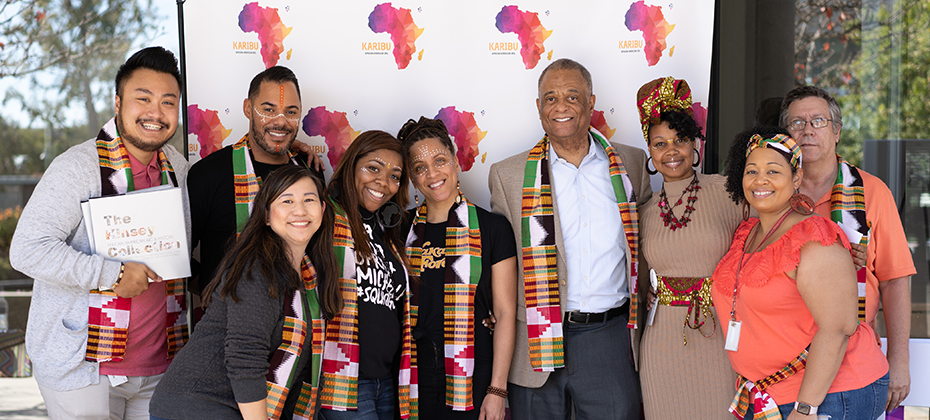
We are proud of our workplace culture at Experian North America. Today, we released our third annual inclusion and diversity “2019 The Power of You” report. We encourage our employees to bring their whole selves to work and have created a culture of inclusion that helps to fuel our continued product innovation. Our Power of You movement began in 2017 to raise awareness about our efforts around inclusion and to provide employees with greater transparency of the initiatives that are part of this program. Progressive policies across a wide range of initiatives such as pay equity, paternal leave, flexible working arrangements and corporate social responsibility help to make our employees feel proud, committed and empowered to work at Experian. “Diversity of background, of experience and of thought bring new ideas to our organization which foster the innovation that helps to improve the lives of consumers every day. Our culture of inclusion and diversity underpins our business success which, underpins what our brand stands for,” said Craig Boundy, former CEO of Experian North America. “With the launch of our ‘2019 The Power of You’ report, we are excited to share how our inclusive workplace is helping to drive our culture of innovation.” Some highlights of our 2019 report include: We have 1,200 women in STEM positions 47% of new hires are women and 44% are non-white Women and men are promoted equally We created our newest ERG, Aspire, which focuses on mental health and physical disability awareness and caregiving We have a total of eight ERGs with 1,200 active participates Employees participate in events including charity walks, fundraising events, and toy and food drives, among others Events recognize International Women's Day, Veteran’s Day, the Lunar New Year, National Coming Out Day, Cinco de Mayo, Asian Pacific American Heritage Month, Black History Month, Ramadan, Kwanzaa, Hispanic Heritage Month and Diwali, among others Employees spent more than 12,000 hours volunteering With the support of our employees, we donated more than $10,000 for California wildfire relief to the Red Cross Employees packed a total of 65,880 meals volunteering with Rise Against Hunger locations in Costa Mesa, Allen and Franklin, California We currently have 38 clubs with 800 members We rolled out a new Paid Family Care Leave Program, expanding on our existing Paid Parental Leave Program Additional programs include the launch of a new, enhanced Employee Assistance Program, which offers a greater level of resources and benefits for mental and behavioral health for employees and families and the Experian Hardship Fund, launched in 2018 to help employees who are facing financial hardship. We continued our Humans of Experian video series, which highlights the stories of employees who have unique backgrounds that enhance the diversity of our company. We also had hundreds of our employees from throughout the organization volunteer to personally evaluate Experian Boost™. Employees participated in this program because they believed in the product’s potential to help millions of Americans. At Experian, we continuously foster a culture of development and growth and we have various forms of mentorship, career paths and leadership programs to support our employees. Our commitment to creating an inclusive workplace has also received numerous accolades. We were named one the 100 Best Companies to Work For in 2020 and one of the Best Workplaces for Diversity in 2020 by Fortune and Great Place to Work. Additionally, for the second consecutive year, we were awarded a perfect score in the Human Rights Campaign Foundation's 2020 Corporate Equality Index. Experian was also named a Top Workplace in 2020 in Orange County, Calif., by the Orange County Register for the seventh consecutive year, and one of the world's most innovative companies by Forbes magazine for five years. A copy of this year's report can be found here.
